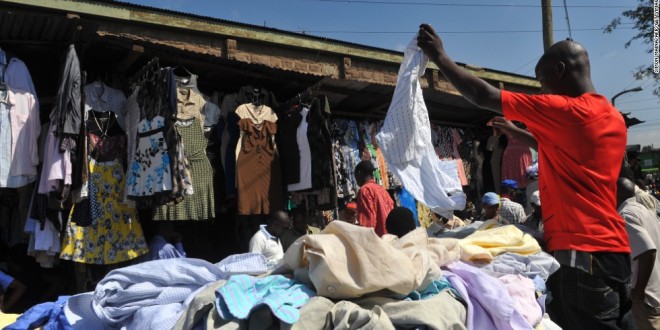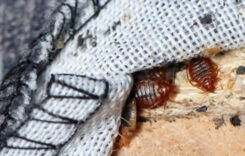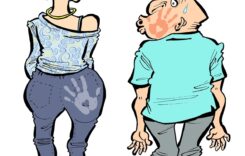The World Health Organisation (WHO) declared the new coronavirus disease (COVID-19) outbreak a global pandemic on March 11.
“WHO has been assessing this outbreak around the clock and we are deeply concerned both by the alarming levels of spread and severity, and by the alarming levels of inaction. We have therefore made the assessment that COVID-19 can be characterized as a pandemic.”
As at March 12, the number of confirmed cases stood at 124,518, with the number of deaths at 4,607, according to the WHO’s latest update.
As the virus spreads, so too does fake news.
Here, we look at some of the myths on COVID-19 shared widely on social networks in Zimbabwe, and what the science really says.
Wearing a mask prevents infection
For people infected with the virus, wearing a mask can help prevent them from infecting others. However, there is no evidence that wearing a mask will protect you from infection.
The WHO only recommends a mask for people that are already infected. A person who is healthy does not need to wear a mask, and they are in fact wasting it, the WHO says.
“Only wear a mask if you are ill with COVID-19 symptoms (especially coughing) or looking after someone who may have COVID-19. Disposable face masks can only be used once. If you are not ill or looking after someone who is ill then you are wasting a mask. There is a world-wide shortage of masks, so WHO urges people to use masks wisely.”
This is corroborated by Public Health England, which says: “Face masks for the general public are not recommended to protect from infection, as there is no evidence of benefit from their use outside healthcare environments.”
Zimbabwe is too hot for coronavirus
There is no science to support the claim that the warm weather in Zimbabwe and Africa prevents the spread of the virus.
“We have to assume that the virus will continue to have the capacity to spread, and it’s a false hope to say yes, it will just disappear in the summertime like influenza,” according to Dr. Michael Ryan, the World Health Organization’s emergencies chief, quoted in the New York Times.
According to the WHO, COVID-19 can be transmitted anywhere, “including areas with hot and humid weather”. The best way to protect yourself is good personal hygiene, including washing your hands.
You can get coronavirus from second-hand clothes
According to studies so far, coronaviruses (including preliminary information on the COVID-19 virus) may stay for up to several days on surfaces. However, the science shows that it cannot be spread by second-hand clothes, or any other goods, shipped from abroad.
“The likelihood of an infected person contaminating commercial goods is low and the risk of catching the virus that causes COVID-19 from a package that has been moved, travelled, and exposed to different conditions and temperature is also low,” the WHO says.
For any virus to remain viable, it needs a combination of conditions such as temperature, lack of light exposure and humidity, according to Dr. Amesh A. Adalja, Senior Scholar, Johns Hopkins Center for Health Security, quoted in a report by tech news website Tom’s Hardware.
According to the Center for Disease Control (CDC): “In general, because of poor survivability of these coronaviruses on surfaces, there is likely very low risk of spread from products or packaging that are shipped over a period of days or weeks at ambient temperatures.”
Black skin can resist coronavirus
This is a false claim, widely circulated on social media.
A February 14 2020 article on the site Af.feednews.com, claimed: “Chinese doctors confirmed African blood genetic composition resists coronavirus after student cured.”
“Senou is a young Cameroonian student in China recently infected with Coronavirus he was released from the hospital this morning cured of the virus. Doctors seeking for a cure to treat the dreadful virus were amazed to see Senou still alive and fit,” the website claimed. “The Chinese doctors confirmed that Senou stayed alive because of his blood genetic composition which is mainly found in the genetic composition of Subsaharan Africans.”
“Chinese doctors also said that he remained alive because he has black skin, the antibodies of a black are 3 times stronger, powerful and resistant compared to that of white”, the website said.
Zimbabwe’s Permanent Secretary in the Ministry of Health and Child Care, Dr Agnes Mahomva, described the claim as “a myth with no science to it”.
AfricaCheck asked Omolade Awodu, a professor of haematology at the school of medicine at Nigeria’s University of Benin, whether African blood and black skin made people resistant to coronavirus.
“This is a new virus and very little is known about it,” she said. “However, I have not come across any research that confirms the claim that African blood composition or black skin resist coronavirus.”
Garlic, bleach, alcohol cure coronavirus
There is currently no vaccine for coronavirus, and no science to support any home remedies for COVID-19.
On garlic, the WHO says while it is “a healthy food that may have some antimicrobial properties”, there’s no evidence that eating garlic can protect people from the new coronavirus.
Do you want to use our content? Click Here












